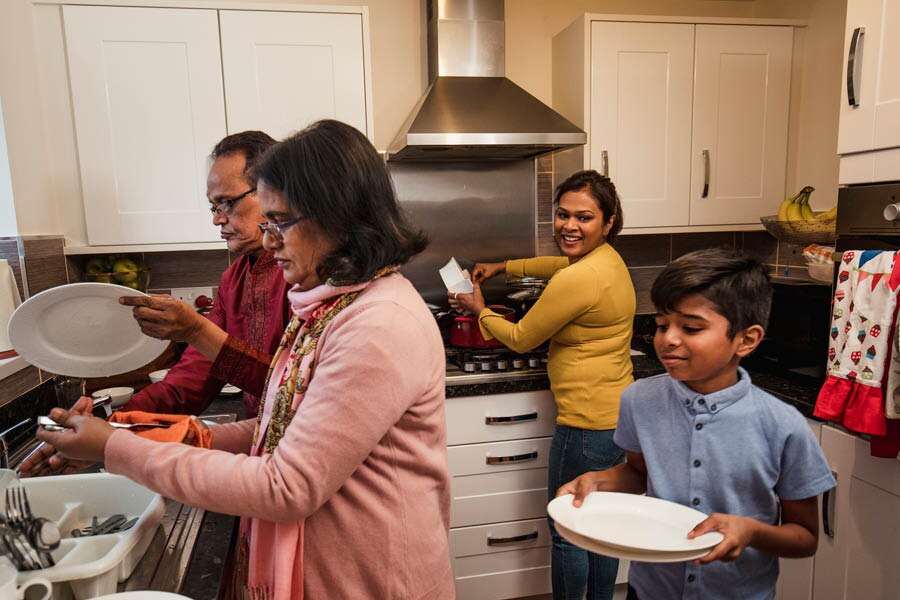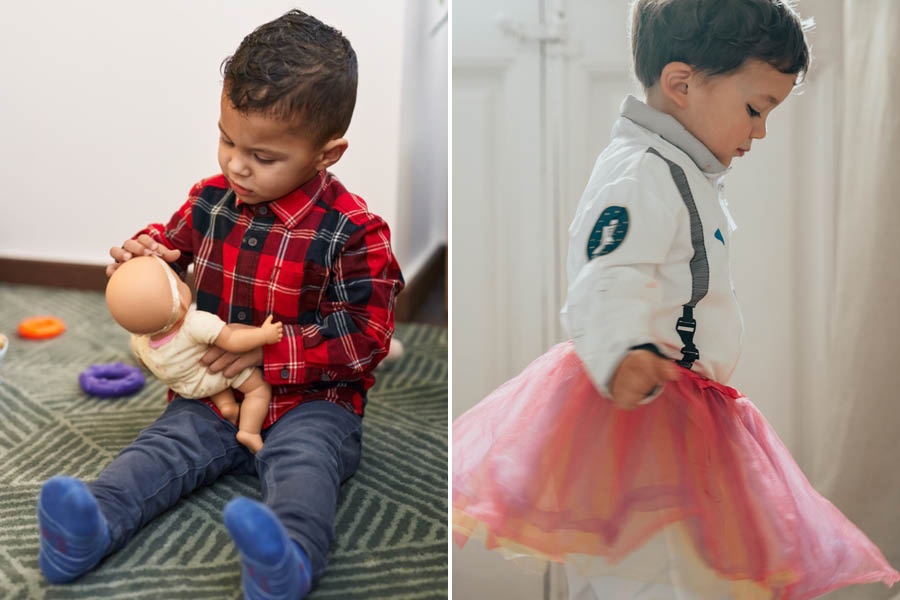It is often a toxic world out there, where disrespect and confusion run rampant. As a mother, my greatest wish is to raise my son to respect and honour everyone. Most importantly, I want him to be free of RBS or ‘Raja Beta Syndrome’. In Indian households, there is an often subconscious glorification of sons, a mindset which should have been challenged long ago. ‘Boys are strong, boys like blue, boys work’ — it’s deeply embedded, making it a constant battle to counteract these ideas. And even if I make constant efforts, societal norms seep in, but I keep trying, hoping to break the cycle.
The one thing I hope for most, as a parent, is that my child will grow up to simply be a decent human being. While I strive to teach him respect for others, I often wonder if it’s enough — especially when it comes to gender. How do I teach my son to truly respect women? It is our collective responsibility to raise the next generation to respect people of all genders, in order to create a better, more equitable world — especially when so many of us have personally faced the brunt of sexism in different spheres of our lives.
‘Couple goals’ are not just a social media hashtag

Children should see parents being respectful towards each other and sharing responsibility iStock
It’s important for children to see their parents as equals — two individuals who complement each other’s strengths and support each other’s weaknesses. When a child sees both his parents being respectful towards each other and sharing responsibility, it automatically fosters a culture of respect and equality. As a couple, we’ve chosen roles that work for us, and we do our best to help each other out. I do not want to sound preachy here; we certainly don’t have it all figured out. We have our moments of weakness, but we make a conscious effort to improve, which has strengthened our relationship and, hopefully, set a positive example for our son.
Teaching consent from a young age is crucial

By teaching children about consent, we can help them understand the boundaries of others iStock
Teaching consent from a young age is essential for fostering healthy relationships. It’s important to instill the fundamental concept of consent — that is to always seek permission first. Everyone has personal boundaries and the right to say ‘no’ to any form of physical contact or activity. By imbibing in them the importance of seeking and respecting clear consent in everyday interactions at home, we can help children understand the boundaries of others.
Boys can cry and be vulnerable

When boys are taught to keep their feelings to themselves, bottle things up and try not to cry, it can lead to expressing emotions in negative ways iStock
When boys are taught to keep their feelings to themselves, bottle things up and try not to cry, it can lead to expressing emotions in negative ways. My partner and I discussed this when we realised how deeply ingrained gender stereotypes are — especially the notion that boys don’t cry. We ensure he understands that feeling sad and crying are natural human responses, which not only helps him process emotions but also teaches him empathy. We talk about inclusion, making sure everyone feels like they are part of the group. I want my son to make an effort to listen to others and value everyone’s ideas. I want him to know it’s okay to cry, to feel vulnerable, and to understand these emotions in himself and others.
Shop across sides

There is no toy or activity that should be considered inappropriate for only one gender Shutterstock, iStock
Play kitchens and baby dolls are all largely marketed towards girls, reinforcing the outdated stereotype that only women are caretakers and homemakers. Making a gender-neutral playroom isn’t the easiest thing, I’ll be honest, but it’s extremely important. Both boys and girls should feel free to enjoy all types of play, whether it’s kitchen and baby play, blocks and cars, science kits or dress-up. There is no toy or activity that should be considered inappropriate for only one gender. Boys can like pink and purple, glitter stars, and rainbows as much as the next child. However, because of the gender stereotypes so prevalent in merchandise, we don’t often get to offer these choices to them.
Reclaim stereotypes

If you hear a sexist comment, make sure your son knows it’s wrong and why iStock
Gender stereotypes are all around us, especially in today’s digital age where children are exposed to negative messages about gender norms. When you see someone being treated unfairly, it is an opportune moment to talk about it with your child and use it to illustrate what’s wrong in the world and what needs to change. If you hear a sexist comment, make sure your son knows it’s wrong and why. When people complain he’s too young, remind them that these harmful ideas started when we were young too. For example, I was reading a bedtime story to my son, in which the doctor treats the protagonist for “female hysteria”. I read it to him multiple times, till my husband pointed out that the comment was sexist, and we decided to skip it. Small wins in life.
Involve them in the Arts

Environments like art, dance or music classes encourage children to embrace big emotions, empathy and respect for others Shutterstock
I am fortunate that my son has access to music and dance, where he can express himself freely. He’ll happily kick a football one moment and slip on a sequined jacket and dance all around the next. Drama, music and dance classrooms are safe spaces that allow children to express themselves and explore their true selves, free from society’s gender norms and expectations. These environments encourage children to embrace big emotions, empathy and respect for others.
We are probably still getting a lot of things wrong because subconscious biases can be tough to overcome, but we should keep trying. As parents, we are the first teachers for children, so have confidence in your beliefs as we raise respectful boys and girls. As American journalist and social activist Gloria Steinem wisely noted, “We’ve begun to raise daughters more like sons... but few have the courage to raise our sons more like our daughters.” It’ll take the work of many to truly change a culture of toxic masculinity, but the way we can start is with how we guide and nurture our own children.
The author is an economist and full-time millennial mother, struggling to cope with daily chores.


